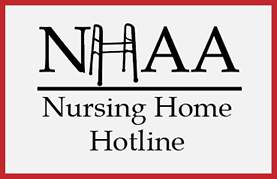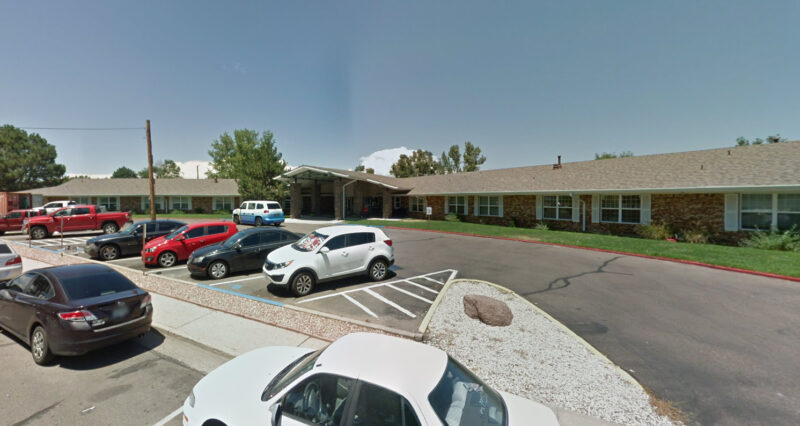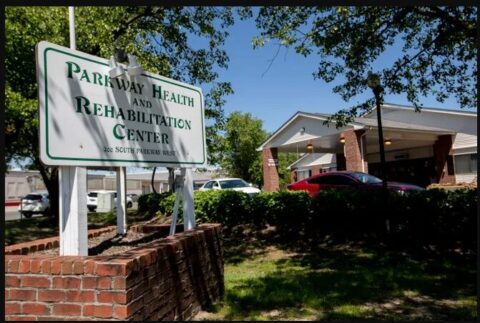State Findings:
**NOTE- TERMS IN BRACKETS HAVE BEEN EDITED TO PROTECT CONFIDENTIALITY** 48412
Based on observations, record review and interviews, the facility failed to ensure activities designed to support residents’ physical, mental, and psychosocial well-being were provided for four (#1, #2, #3 and #4) of four residents reviewed for activities out of seven sample residents.
Specifically, the facility failed to offer and provide personalized activity programs for Resident #1, #2, #3 and #4.
Findings include:
I. Resident #1
A. Resident status
Resident #1, age under 65, was admitted on [DATE]. According to the April 2023 computerized physician orders (CPO) diagnoses included quadriplegia (paralysis of all four limbs) and brain injury.
The 3/13/23 minimum data set (MDS) assessment showed that a brief interview for mental status (BIMS) was not completed as the resident was never understood. The resident required extensive assistance from two staff with activities of daily living. The MDS assessment did not have any preferred activities documented.
B. Observations
4/5/23
-At 9:13 a.m., the resident was lying in bed. The resident was sleeping. The television (TV) was on in the background in English.
-At 9:37 a.m., certified nurses aide (CNA) #2 and #3 entered the resident’s room to provide care, they did not conversate with the resident either before or after the care.
-At 9:42 a.m., registered nurse (RN) #4 entered the resident’s room to provide care, however, she did not interact with the resident. The TV remained on an English-speaking channel.
-At 10:47 a.m., a respiratory therapist (RT) entered the room and suctioned out the resident’s tracheotomy. The RT did not conversate with the resident while she was caring for the resident.
-At 11:01 a.m., RN #4 entered the resident’s room and brushed his teeth. RN #4 explained to the resident what she would do but did not conversate further.
4/6/23
-At 11:30 a.m., the resident was laying in bed with the TV on and a horror movie playing in English.
C. Record review
The 9/22/22 care plan identified the resident had a total dependence on the facility staff to provide activities, cognitive stimulation, and social interactions. Pertinent goals included to maintain or improve the resident’s current level of functioning with bed mobility, transfers, eating, toileting, dressing, grooming, personal hygiene, and ADLs.
The care plan, last revised on 2/7/23, identified the resident was on a one-to-one program, offered three times a week, for socialization and stimulation. The care plan documented the resident would participate in group activities with his mother.
-The care plan did not indicate the resident prefers Spanish since it is his first language including TV programming (see activity director interview below).
The activities participation record from 3/5/23 to 4/5/23 showed the resident had minimal activities offered, as many of the activities had no data found. Activities were documented as observing surroundings and family visits.
D. Interview
The activity director (AD) was interviewed on 4/5/23 at 3:48 p.m. The AD said the resident was unresponsive. She said the resident’s preferred activities were music and TV. She said it should be provided in Spanish, however, she did acknowledge the TV was in English and a horror movie should not have been on since he did not like those types of movies. She said the resident seemed to respond better to Spanish. She said the resident spent his day in his room and in bed. The AD explained the resident was involved in the facility’s one-on-one program and staff would bring in a tablet to play Mexican music or sounds to stimulate the resident.
II. Resident #4
A. Resident status
Resident #4, age less than 65, was admitted on [DATE]. According to the April 2023 CPO diagnoses included quadriplegia, paraplegia (paralysis of two extremities on the same side of the body), anxiety, and major depressive disorder.
The 2/13/23 MDS assessment revealed the resident had no cognitive impairments with a score of 15 out of 15 on the BIMS. He required extensive assistance with activities of daily living. The MDS assessment showed it was very important to the resident to participate in preferred activities and spend time with his family.
B. Resident interview
Resident #4 was interviewed on 4/3/23 at approximately 2:00 p.m. The resident said he was bored and did not have any activity to do.
Resident #4 was interviewed a second time on 4/5/23 at 2:30 p.m. The resident said he was dependent on staff for all care Resident #4 said he refused to get up for activities because there was nothing age appropriate for him to participate in and the other residents were not around his age for him to socialize with. The activities he was offered did not feel age-appropriate to him. He stated the facility staff did not come into his room just to socialize with him. The resident said the isolation affected his anxiety, depression, and quality of life and he felt the facility did not want him to discharge or be happy.
C. Record review
The care plan, revised on 9/8/22, documented the resident was at risk for adjustment and psychosocial well-being issues because of self-isolation and health issues. According to the care plan, the facility staff needed to encourage ongoing family involvement. The resident enjoyed spending time on his Ipad, talking to family, being outside, watching TV, and listening to music.
The participation record from 3/5/23 to 4/5/23 showed independent activities which were using his Ipad (tablet) and watching TV.
D. Interview
The activities director (AD) was interviewed on 4/6/23 at 3:48 p.m. The AD said the resident refused a lot of activities. The AD acknowledged there were not a lot of activities for his age.
III. Resident #2
A. Resident status
Resident # 2, age less than 65, most recent readmission was 2/15/22. The April 2023 CPO diagnoses included anoxic (loss of oxygen) brain damage, chronic respiratory failure (ventilator dependent), muscle wasting/atrophy and contractures of both shoulders, elbows, wrists and feet.
The 3/13/23 MDS assessment had a severe cognitive impairment. The resident required total dependence on staff for all ADLs.
B. Observation
4/4/23
-At 2:10 p.m., the resident was laying in bed with no activities.
-At 2:50 p.m., the resident was laying in bed with no activities.
-At 3:34 p.m., the resident was laying in bed with no activities.
4/5/23
-At 9:13 a.m., the resident was lying in bed, asleep, with no TV or music on. A housekeeper entered the resident’s room to clean without providing staff interaction.
-At 9:40 a.m., certified nurses aide (CNA) #2 and #3 entered the resident’s room. They changed and repositioned him. When the CNAs left the room, the resident was observed still laying in bed in the same position with no TV or music on.
-At 9:43 a.m., registered nurse (RN) #4 entered the resident’s room to provide care, however, she did not interact with the resident.
-At 10:09 a.m., CNA #3 entered the resident’s room to get him ready for a shower.
-At 10:31 a.m., CNA #3 returned the resident to his room. He was observed in the same supine position without the TV or music on.
-At 10:45 a.m., the resident was laying in bed awake and looked around his room but did not have activities on.
-At 11:10 a.m., RN #4 entered the room to provide care but did not interact with the resident.
-At 11:33 a.m., the resident was observed lying supine in bed. He looked around his room and did not have anything on in the background.
-At 12:18 p.m., the resident was observed in the same position without activities.
-At 12:48 p.m., the resident’s breathing machine alerted. Staff entered the room and provided care but no staff interaction was observed.
-At 12:51 p.m., RT #1 entered the resident’s room and provided care to his tracheotomy but did not interact with the resident.
-At 1:10 p.m., a representative from the activities department entered another resident’s room and did not visit Resident #2.
4/6/23
-At 9:00 a.m., the resident was laying in bed with no activities.
-At 10:12 a.m., the resident was laying in bed with no activities.
-At 1:00 p.m., the resident was laying in bed and had music playing in his room.
C. Record review
The MDS assessment dated [DATE] showed the resident’s preferences were going outdoors, listening to music, and being around animals.
The care plan dated 5/26/22 identified, the resident was on a one-on-one activity program three times a week.
Pertinent interventions were to ensure the TV and music were on, and anticipate activity needs.
The March 2023 participation records failed to show any activities.
D. Interview
The AD was interviewed on 4/6/23 at 3:48 p.m. The AD said the resident would benefit from sensory stimulation. She said the resident enjoyed music and specialty bands. She said he liked to watch TV. She said that the nursing staff would turn off the TV and music due to quite time. She said then the music or TV was not turned back on. She said she needed to talk to the nursing department about the resident’s activity plan.
IV. Resident #3
A. Resident status
Resident #3, under the age of 65, was admitted on [DATE]. According to the April 2023 CPO, diagnoses per the care plan of cerebral palsy (a congenital disorder of movement, muscle tone, or posture) and seizures.
The 3/13/23 MDS assessment showed the resident was cognitively impaired and was fully dependent upon staff for all ADLs.
B. Observation
4/4/23
-At 12:30 p.m., the resident was in bed without the TV or music on.
-At 3:45 p.m., the resident was in bed without the TV or music on.
4/5/23
-At 9:30 a.m., the resident remained in bed. The resident did not have any meaningful activity.
-At 10:00 a.m., the resident remained in bed awake. The resident did not have any meaningful activity.
-At 11:50 a.m., the resident was assisted to the front lobby in his wheelchair. He stayed in the lobby until 2:30 p.m., then returned to his room.
C. Record review
The care plan, revised 10/27/22, identified the resident had life-long interests, customary leisure routines, and preferences included the Baptist religion. The resident wanted to be a part of music, entertainment, watching movies, sitting in common areas, and watching people. Individual activity preferences included watching movies like cars, Shrek, Minions, and various cartoons. He enjoyed pet visits and visits with family. Care plan interventions included a one-to-one program, three times per week.
The 12/13/22 MDS assessment showed the resident’s preferences were he enjoyed listening to music, going outside for fresh air and doing his favorite activities.
The participation records for March 2023 showed no social activity.
D. Interviews
Resident #5 was interviewed on 4/5/23 at 8:45 a.m. Resident #5 said he had been Resident #3’s roommate for a while. He said he was concerned that Resident #3 did not have anything to do. He said the resident spent his time in bed and did not have much interaction with anyone.
The activities director (AD) was interviewed on 4/6/23 at 3:48 p.m.The AD said the resident was on a one-to-one program. She said the one-on-one was conducted three times a week. The AD stated that the resident liked to sit in the foyer, and then he would attend group activities. The AD stated the resident liked music and that the resident’s mother had requested staff read Bible passages to the resident. The AD said the resident did not have any touch stimulation.
48458
Your Experience Matters
...and we want to hear it.
NHAA is here to assist families, residents, and the community by sounding the alarm on issues like those found above. This nursing home and many others across the country are cited for abuse and neglect.
If you have or had a loved one living in this nursing home or any other nursing home where you suspect any form of abuse or neglect, contact us immediately.
We have helped many already and we can help you and your loved one as well by filing a state complaint, hiring a specialized nursing home attorney or helping you find a more suitable location for your loved one.
You can make a difference, even if your loved one has already passed away.
Please give us a call at 1-800-645-5262 or fill out our form detailing your experience.
Personal Note from NHA-Advocates
NHAA shares with all the families of loved ones who are confined to nursing homes the pain and anguish of putting them in the care of someone else. We expect our loved ones to be treated with dignity and honor in the homes we place them. We cannot emphasize enough to family members of nursing home residents; frequent visits are essential to our loved ones’ well-being and safety.
If you are struggling and upset, click here to understand your options, or contact us through our contact form or call our toll free hot line number: 1-800-645-5262.








